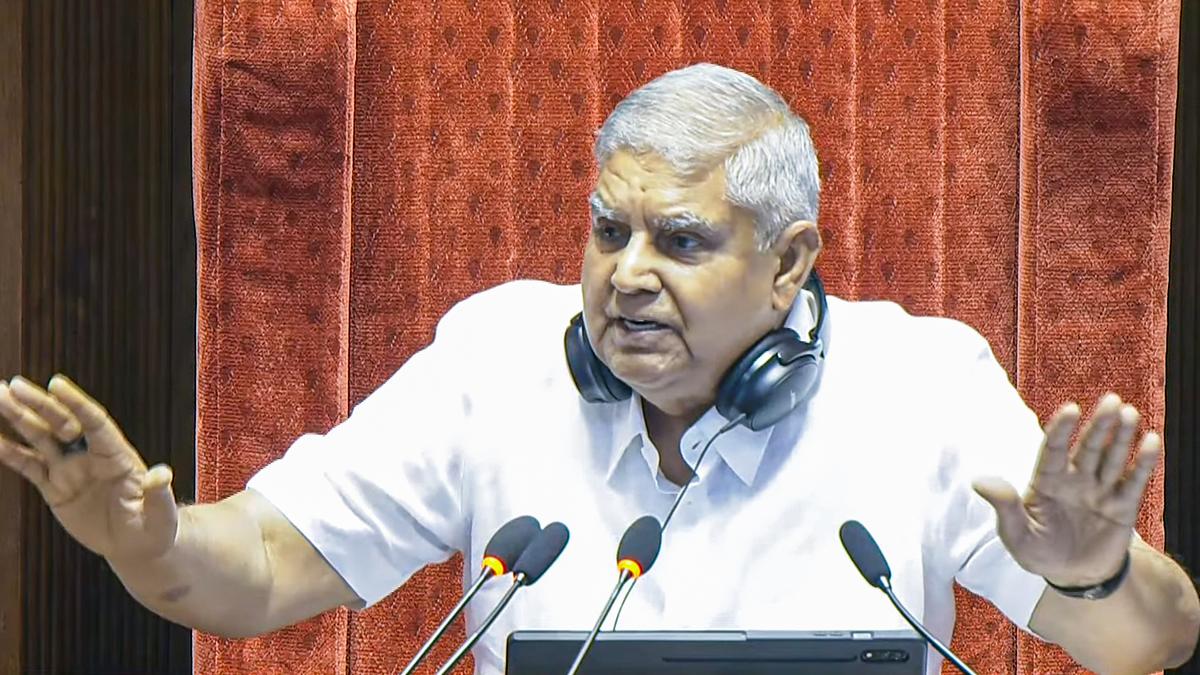With the resignation of Vice-President Jagdeep Dhankhar, the Election Commission of India (ECI) will have to announce polls to fill the position with immediate effect as the constitutional post cannot be left vacant. The ECI is mandated to do so as soon as a gazette notification announcing the vacancy for the V-P’s position is issued by the government.
The Vice-President holds office for a term of five years from the date on which he enters office. However, notwithstanding the expiration of his term, he shall continue to hold office, until his successor enters upon his office. In the case of death, removal or resignation of the Vice-President, the Constitution does not provide any method of succession, apart from a fresh election, only that in such an event the Deputy Chairman can function as the Chairman of the Rajya Sabha.
“Thus, in case of a resignation, the ECI has to call for elections immediately as the position cannot be left vacant,” according to Constitutional Law expert P.D.T. Achary.
The Vice-President is elected by an Electoral College, which consists of the members of the Lok Sabha and the Rajya Sabha — both elected and nominated. Members of the Electoral College can vote according to their choice and are not bound by any party whip.
According to the Presidential and Vice-Presidential Elections Rules, 1974, the nomination paper has to be subscribed by at least twenty electors as proposers and at least twenty electors as seconders and has to be presented to the Returning Officer, between 11 a.m. and 3 p.m. on any day appointed for the purpose, either by the candidate himself or by any of his proposers or seconders. The Security Deposit for the election is ₹15,000.
As per Article 66(1) of the Constitution of India, the election of the Vice-President shall be held in accordance with the system of proportional representation by means of single transferable vote and the voting at such election shall be by secret ballot.
Unlike the presidential election, where the value of votes cast by the Members of Parliament and of the various State Legislative Assemblies is different, the value of every vote cast in the vice-presidential election has the same value that is one.
The election being held in accordance with the system of proportional representation by means of single transferable vote, means that every elector has as many preferences as candidate contesting the elections. The winning candidate has to secure the required quota of votes to be declared elected, that is 50% of the valid votes cast plus one.
By convention, the Secretary General of the Lok Sabha, or the Secretary General of the Rajya Sabha, is appointed as the Returning Officer, by rotation. Two other senior officers of the Lok Sabha or the Rajya Sabha Secretariats are appointed as the Assistant Returning Officers.



 Motivational
Motivational 22 Jul, 2025
22 Jul, 2025 Evelyn Perez
Evelyn Perez